What have we done so far?
Although it’s been a busy week for us with midterms and assignments from other classes, we’ve managed to get in contact with 3 community kitchens so far and establish dates/times to visit them. At first we had difficulty with contacting them and had to call them several times, but we were eventually successful in reaching them. When we called the organizations and talked to the director of the community kitchen they seemed quite enthusiastic about meeting with us and having us interview them.
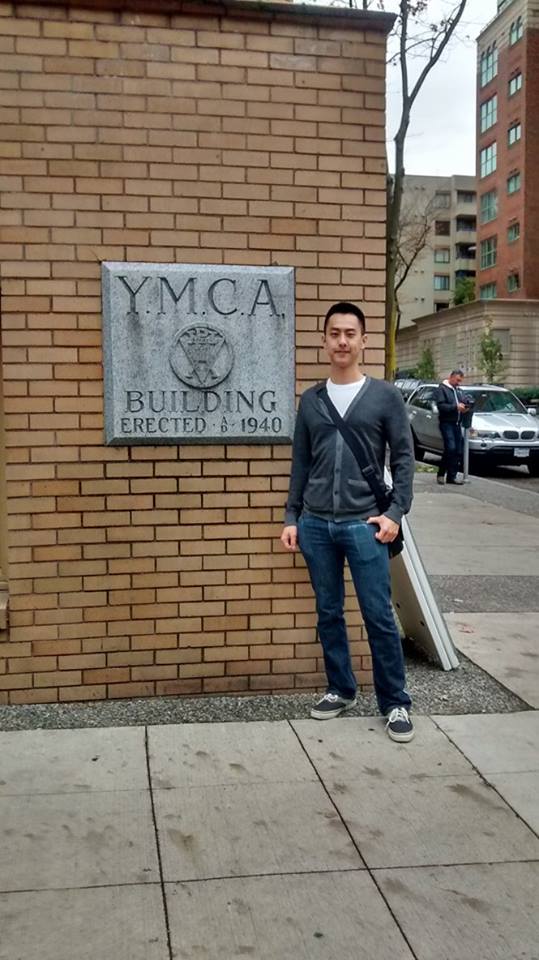
Our greatest achievement this week was conducting our first survey! Patrick and Oliver completed a kitchen survey at the Robert Lee YMCA. Overall, the interview went very well. The kitchen manager was extremely helpful in answering the survey questions and was also very accommodating, allowing us to take lots of pictures and gather all of the data we need. The kitchen was very well equipped and far exceeded our expectations. Overall, it was a great first experience, and we’re excited to continue conducting the remainder of the surveys.
We’ve also spruced up our blog by adding a new theme and more pictures to our blog posts. We wanted to make our blog more visually appealing to create an enhanced experience for the reader and express our ideas creatively.
Overall, as a group we’ve been able to keep up with our assignments, including our blog and have been able to work well in splitting up the workload and making sure that we stay on top of things. Our strategy of meeting in-person as a group to work on the blog posts/reports, then arranging a time to edit remotely, online via Google Doc, has allowed us to be very efficient and find flexibility in our busy schedules.
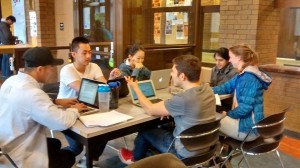
What do we have to do now?
We’ve already met with one kitchen and have more meetings coming up so we have some more objectives to meet to keep the project rolling! Our primary objective this week is to carry out the rest of our arranged meetings with our community kitchen partners. Based on our schedules, we are trying to meet in pairs to maximize the time we have on site. Being in pairs will help since the more eyes we have observing the kitchen the better it can be for data collection.
Our objective in these meetings is simple: conduct the survey. Although it sounds simple, the data collection portion of the project will be very important going forward and gathering thorough, quality observations is crucial . We will also conduct the surveys on paper copies to allow for a more organic and transparent feel while we are interviewing community members. Talking behind a monitor doesn’t seem very personal and it’s something we would like to avoid.
Other than those immediate objectives, an ongoing objective of our group is to continuously reflect on our progress with this project through our blog posts, while incorporating Adrienne’s feedback. As we receive feedback or gain new insights on our project, we can go back and add, remove, or refine our points in the posts. Another way we plan to keep our posts up to date is by staying current with our course readings as they will likely offer important insights that will affect how we view and continue this project.
What have we learned?
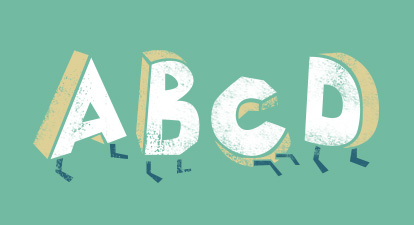
Since the beginning of our project we have attempted to challenge our perspectives and critical thinking skills. Previously, we found ourselves using a traditional method of analysis which focuses on the deficiencies and barriers of each situation. However, throughout the past couple of weeks we have gone through the growing pains of changing our mindset and trying to address issues with an Asset Based Community Development (ABCD) approach. This process of change has challenged the manner in which our educational experiences taught us to think.
Traditional methods of assessment usually search for what’s missing instead of focusing on what’s already there. In our education system,we have always focused on what we are doing wrong. For example, when our group received our scores for our proposal report and presentation, we frantically looked for comments that showed us where we lost marks and took for granted the areas we did well in. This process has been repeated numerous times throughout our educational careers. We have always interpreted our grades as a reflection of what we did wrong. Even when a high mark such as 90% is achieved, students are still left wondering what their assignment lacked and what prevented them from getting a perfect score.
Why does it matter?
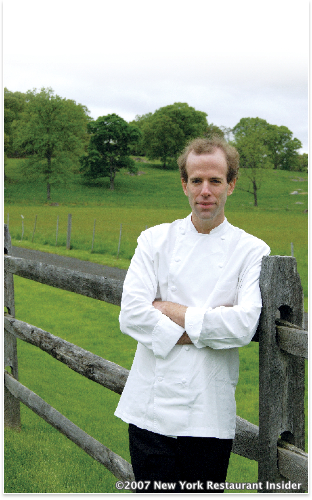
Our shifting approach to the research we are embarking on has been difficult because it involves abandoning ways of thinking that we have become very comfortable with. This is a challenge people often encounter when an integral part of their knowledge, or their way of thinking is countered. Anyone who seeks to learn about what they already know from an unfamiliar source, will find themselves confronted with new perspectives that may cause them to re-evaluate their understanding. In the podcast “Poultry Slam 2011, Act 3, Latin Liver” from This American Life, Dan Barber, a chef with a full-scale organic farm that supplies his own restaurants, encountered a practice for making fois gras that contradicted all his previous knowledge on the subject. From his experiences in the cooking world, Dan had assumed that only by force feeding geese, a practice known as gavage, could the delicacy of fois gras be made. When he heard about Eduardo Sousa, a Spanish man who uses a cruelty-free approach to making fois gras, Dan struggled to accept the possibility that there were methods of making the delicacy that countered the foundations of the traditional practices he knew. When Dan flew out to meet Eduardo, he first saw him in a field of grass, surrounded by his geese. Dan’s first impression of Eduardo was that he was a “bizarre horse whisperer” and he assumed that his methods of production would be the same. Dan had lost all faith and respect for Eduardo’s method of making fois gras before even knowing what it was. Dan’s approach in this moment of the story resonated with our group, and reminded us of when we first realised we needed to change our scope for our research to an ABCD lens. We had trouble understanding how to create recommendations for the City of Vancouver without analyzing the data we will be collecting through a negative lens.
What are we going to do about it?

Our original understanding of the project’s overall goals was that we would be making recommendations on what we felt community kitchens needed. We expected to analyze what barriers were challenging kitchens, and recommend methods to improve the situation in kitchens to the city. Our change in scope will ultimately determine what perspective our recommendations provide to the City, and what type of initiatives follow as a result of our report.
In the example mentioned previously, Dan attempted to replicate Eduardo’s methods of raising geese for fois gras. After three attempts, he still hadn’t managed to reproduce the “wild” aspect of Eduardo’s production. What our group noticed about each of his attempts was that he never seemed to be able to completely let go of his previous knowledge of raising livestock, and fully grasp the principles Eduardo used when raising his geese. In terms of our project, our success in using an ABCD scope will be determined by our ability to let go of our previous ways of thinking. Dan’s success was limited by his inability to completely neglect his previous knowledge on producing fois gras.
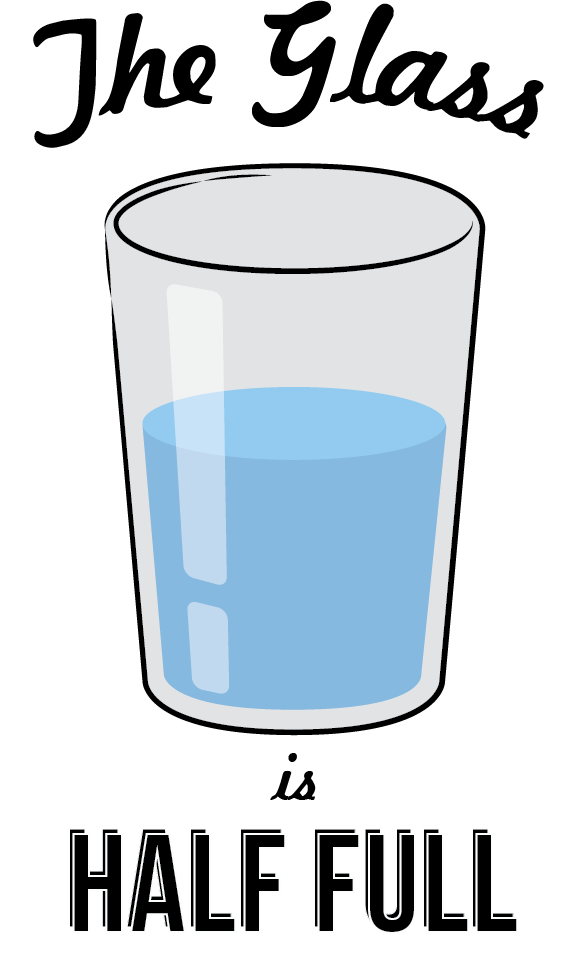
Similarly, our success will depend on whether our previous critical thinking strategies overcome our desire to use an ABCD lens. It will be a challenge to ensure that we are using ABCD approaches during the survey, as well as throughout the process of analyzing data and writing our final report. The language that we use throughout our project will be a key component of ensuring we are using ABCD methods. For example, if one of our recommendations in our report was related to improving the equipment in the kitchens, we would say “We found that feedback from our community partners indicated a desire to upgrade or improve the maintenance of kitchen equipment because it would enrich
their established community programs”, as opposed to saying “From our visits to the kitchens, it was clear that their equipment was inadequate and needed outside intervention to improve the resources for their programming”. By changing our thinking to focus on positives over negatives, we will use language in our recommendations that focuses on the strengths and assets of the kitchens we survey. Which will result in more focus on what the City of Vancouver can do to promote and support leadership and development from within the community kitchens.
*** To learn more about Eduardo Sousa and how to make frois gras cruelty-free, go to his website, where you can watch a short video about Eduardo and his farm
Cover image via
